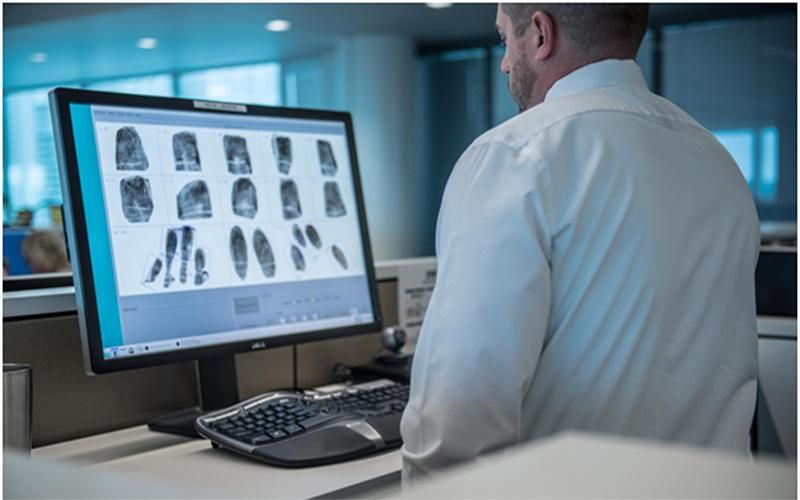A background check and fingerprint check might seem like the same thing, but they’re actually quite different. A background check, also called an employment background check, is just what it sounds like—it helps employers ensure that their candidates are suitable for the position they’re applying to by looking at their past history.
A fingerprint check, also known as a criminal record search or criminal history check, involves verifying the identity of someone who has already been hired and/or determining whether they have a criminal record that could potentially affect their performance on the job.
What is a background check?
A background check is a screening process that looks at an individual's criminal history, financial history, and other public records. The goal is to determine whether or not the person is qualified for the job or position they're applying for. If there are any discrepancies found in the background check, such as a felony conviction, arrest warrant, civil judgment against them, etc., then they will not be granted access to the desired job.
What is Fingerprint Check?
A fingerprint check is when a law enforcement agency checks your fingerprints against their database to see if you have a criminal record. This can be done for employment, licensing, or other reasons. If you have been arrested, your fingerprints will be on file. If you have not been arrested, your fingerprints might not be on file. You might need to get fingerprinted at the police station for this type of check. When you go in, tell them that it’s just a background check and that you are not applying for any job, license, etc.
Difference Between Fingerprint Check and Background Check
If you're thinking of running a background check on someone, you might be wondering what the difference is between a fingerprint check and a regular background check. Here's a quick rundown
Fingerprints are unique to an individual, while a name can be shared by many people. The data collected during a fingerprint check will show up if that person has ever been arrested or booked into jail before. A fingerprint check is when an applicant's fingerprints are taken and run through a database to see if the person has a criminal record. If they do, it will show up on the screen as well as any other time they were arrested or had their fingerprints taken.
A background check may not pick up this information as it typically only looks at records in the last 7-10 years. If you're trying to figure out who to hire for your business, you should conduct both types of checks as they serve different purposes. A background check is when an employer requests information about an applicant's criminal history, education, and employment history. The employer may also contact references.
The process to do Background Check
Running a background check is simple. First, you need to gather information about the person you want to check up on. This can include their full name, date of birth, Social Security number, and current address. Once you have this information, you can run a search through online databases or contact a professional background check company. In order to get an accurate report, it’s best to give as much detail as possible when filling out the form. You may also be asked for personal details about your own criminal history in order to keep yourself from being discriminated against.
The process to do a Fingerprint Check
You can get fingerprinted at your local police station, sheriff's office, or some courthouses. The process is quick and easy - you'll just need to provide identification and pay a small fee. Once you're fingerprinted, the results will be sent to the FBI for a background check. A fingerprint check is more thorough than a regular background check because it includes your criminal history if any. Plus, a person who has been convicted of an offense could potentially have their fingerprints permanently inked on the FBI database. That's why employers might ask you to undergo this type of screening before they offer you a job.



 StableDiffusion
StableDiffusion StableDiffusion
StableDiffusion StableDiffusion
StableDiffusion Photo by
Photo by  Photo by
Photo by  Photo by
Photo by 
 Photo by
Photo by  Photo by
Photo by  Photo by
Photo by  Photo by
Photo by  Photo by
Photo by 








